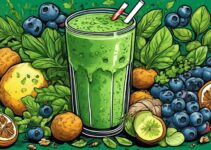As you age, your mind may feel like a garden that needs a little extra care to thrive. Just like a neglected garden can benefit from the right nutrients and care, your aging mind may benefit from certain nootropics. These cognitive enhancers have gained attention for their potential to support brain function and vitality. But with so many options available, how do you know which ones are truly effective and safe for aging minds?
Key Takeaways
- Age-related cognitive decline can be attributed to a decrease in brain plasticity.
- Regular physical exercise, a healthy diet, and cognitive activities can support neuroprotective mechanisms.
- Nootropics, such as racetams and choline sources, have potential neuroprotective effects and can enhance cognitive function.
- Engaging in activities that promote brain plasticity, like cognitive exercises and learning new skills, can promote long-term brain health.
Understanding Cognitive Decline in Aging
Understanding cognitive decline in aging is a complex process involving various factors that can impact memory, attention, and problem-solving abilities. One key aspect to consider is brain plasticity, which refers to the brain's ability to adapt and reorganize itself throughout the aging process. As individuals age, the brain's plasticity can diminish, leading to challenges in learning and cognitive function. This decline in brain plasticity can contribute to the development of age-related cognitive impairments.
Neuroprotective strategies play a crucial role in addressing cognitive decline in aging. These strategies are aimed at preserving neuronal structure and function, ultimately supporting cognitive health as individuals grow older. By promoting neuroprotection, it is possible to mitigate the effects of aging on cognitive abilities. Research has shown that certain lifestyle factors, such as engaging in regular physical exercise, maintaining a healthy diet, and participating in cognitive activities, can support neuroprotective mechanisms. Additionally, specific compounds known as nootropics have garnered attention for their potential neuroprotective effects. These substances are believed to enhance cognitive function and protect against age-related cognitive decline.
Understanding the complex interplay of brain plasticity and the implementation of neuroprotective strategies is crucial in addressing cognitive decline in aging. By recognizing the factors that contribute to cognitive aging and adopting interventions that support brain health, it is possible to promote cognitive resilience as individuals advance in age.
Key Nootropics for Memory Enhancement
As the brain's plasticity diminishes with age, exploring the potential of key nootropics for memory enhancement becomes increasingly significant in addressing cognitive decline. Nootropic stacks, which are combinations of different cognitive enhancing compounds, offer a promising approach to improving memory function in aging individuals. These stacks typically consist of various substances such as racetams, choline sources, and adaptogens, all of which are believed to work synergistically to support cognitive processes including memory.
Racetams, such as piracetam and aniracetam, are well-known for their potential to enhance memory and learning. These compounds are thought to modulate neurotransmitter systems and improve synaptic plasticity, thereby promoting better memory formation and recall. Choline sources like Alpha-GPC or CDP-choline are often included in nootropic stacks to support the production of acetylcholine, a neurotransmitter crucial for memory and learning. Additionally, adaptogens like Rhodiola Rosea and Bacopa Monnieri are believed to mitigate the effects of stress and improve memory function.
When considering memory supplements, it's important to note that individual responses can vary, and it's advisable to consult with a healthcare professional before starting any new regimen. Furthermore, it's essential to emphasize that while nootropics hold promise for memory enhancement, a holistic approach to brain health, including a balanced diet, regular exercise, and mental stimulation, is fundamental for maintaining cognitive function as one ages.
Enhancing Focus and Concentration
To enhance focus and concentration, incorporating specific nootropics into your daily routine can be a strategic approach to optimizing cognitive performance. Nootropics are known for their potential to enhance mental acuity and cognitive performance, making them valuable tools for individuals seeking to improve their focus and concentration.
One of the most well-known nootropics for enhancing focus and concentration is caffeine. Found in coffee, tea, and certain supplements, caffeine is a stimulant that can help increase alertness and improve concentration. It works by blocking the action of adenosine, a neurotransmitter that promotes relaxation and sleep, thereby leading to increased wakefulness and improved focus.
L-theanine, an amino acid found in tea leaves, is another popular nootropic known for its ability to promote relaxation without causing drowsiness. When combined with caffeine, L-theanine can enhance cognitive performance by improving attention and focus while reducing the jittery effects often associated with caffeine consumption.
Furthermore, racetams, a class of synthetic compounds, have been studied for their potential to enhance cognitive function, including focus and concentration. Piracetam, for example, has been shown to improve cognitive performance by modulating neurotransmitter systems in the brain, leading to enhanced focus and attention.
Nootropics for Mood and Stress Management
When considering nootropics for mood and stress management, it's essential to explore their potential impact on cognitive function and emotional well-being. Nootropics for mood and stress management aim to alleviate feelings of stress and anxiety while promoting emotional regulation. These compounds may offer stress relief by modulating neurotransmitters such as serotonin, dopamine, and gamma-aminobutyric acid (GABA) in the brain, which play crucial roles in mood regulation.
One nootropic that has gained attention for its potential in stress management is L-theanine, an amino acid found in green tea. Research suggests that L-theanine may promote relaxation and reduce stress by increasing alpha brain wave activity. This can lead to a state of calm alertness, helping individuals to manage stress more effectively. Another nootropic, Rhodiola Rosea, has been studied for its adaptogenic properties, which may help the body and mind adapt to stressors more efficiently.
Furthermore, adaptogens like Ashwagandha have shown promise in alleviating stress and anxiety. Ashwagandha may modulate the body's stress response by reducing cortisol levels, thus promoting a more balanced emotional state. Additionally, compounds like Bacopa Monnieri have been linked to enhanced mood and reduced feelings of anxiety.
While nootropics for mood and stress management hold potential, it's important to consult with a healthcare professional before incorporating them into your routine, especially if you have existing medical conditions or are taking other medications.
Promoting Long-Term Brain Health
Exploring nootropics for mood and stress management has illuminated the potential for these compounds to play a role in promoting long-term brain health through their impact on cognitive function and emotional well-being. In addition to the use of nootropics, promoting long-term brain health involves engaging in brain-boosting exercises and considering the use of dietary supplements.
Engaging in brain-boosting exercises is essential for promoting long-term brain health. Physical exercise has been shown to have a positive impact on brain health by enhancing cognitive function and reducing the risk of neurodegenerative diseases. Activities such as aerobic exercises, strength training, and mind-body exercises can significantly contribute to maintaining cognitive abilities and promoting overall brain health.
In addition to physical exercise, dietary supplements can also play a crucial role in promoting long-term brain health. Certain nutrients, such as omega-3 fatty acids, vitamins, and antioxidants, have been linked to improved cognitive function and overall brain health. These dietary supplements can help support brain function and protect against age-related cognitive decline.
Frequently Asked Questions
Can Nootropics Interact With Other Medications Commonly Used by Older Adults?
When taking nootropics, it's crucial to consider potential drug interactions, especially for older adults' safety. Nootropics can interact with other medications commonly used by older adults, impacting their effectiveness or causing adverse effects. It's essential to consult with a healthcare professional before starting any new supplement regimen, and to carefully review all medications, including over-the-counter and herbal supplements, to ensure safe and effective usage.
Are There Any Potential Side Effects of Using Nootropics for Memory Enhancement in Aging Adults?
When considering nootropics for memory enhancement in aging adults, it's important to be aware of potential risks. Research shows that long-term use of certain nootropics may lead to adverse effects such as insomnia, headaches, or gastrointestinal discomfort. It's crucial to consult a healthcare professional before introducing any new supplement, especially in older age. Understanding the potential risks and long-term effects can help you make informed decisions about your cognitive health.
How Long Does It Typically Take to See Noticeable Improvements in Focus and Concentration When Using Nootropics?
Typically, noticeable improvements in focus and concentration when using nootropics depend on various factors, including the specific type of nootropic, individual response, and dosage effectiveness. Improvement timelines can vary, with some individuals experiencing benefits within a few days to a week, while for others, it may take a few weeks to a month. It's important to start with a low dose and gradually increase it to gauge the effects and minimize potential side effects.
Are There Specific Nootropics That Are More Effective for Managing Mood and Stress in Older Individuals?
To manage mood and stress in older individuals, specific nutritional supplements, cognitive therapy, meditation, and exercise can be effective. Omega-3 fatty acids, Rhodiola rosea, and L-theanine are nootropics that may support mood and stress management. These can be complemented by cognitive therapy, meditation, and regular exercise, which have shown positive effects on mental health in aging individuals. It's important to consult with a healthcare professional before starting any new supplement regimen.
What Lifestyle Changes Can Complement the Use of Nootropics for Promoting Long-Term Brain Health in Aging Adults?
To promote long-term brain health in aging adults, lifestyle changes like incorporating mindfulness techniques and dietary adjustments can complement the use of nootropics. Mindfulness techniques, such as meditation and deep breathing, can help reduce stress and enhance cognitive function. Additionally, adopting a diet rich in antioxidants, omega-3 fatty acids, and brain-boosting nutrients like blueberries and turmeric can support cognitive vitality. These lifestyle changes work synergistically with nootropics to revitalize aging minds.
Conclusion
In conclusion, nootropics offer a potent potential for promoting peak brain performance and combating cognitive decline. By incorporating key nootropics into your daily routine, you can revitalize your aging mind, enhance memory, focus, and mood, and promote long-term brain health. Don't delay, delve into the world of nootropics and discover the dynamic difference they can make in your life.



